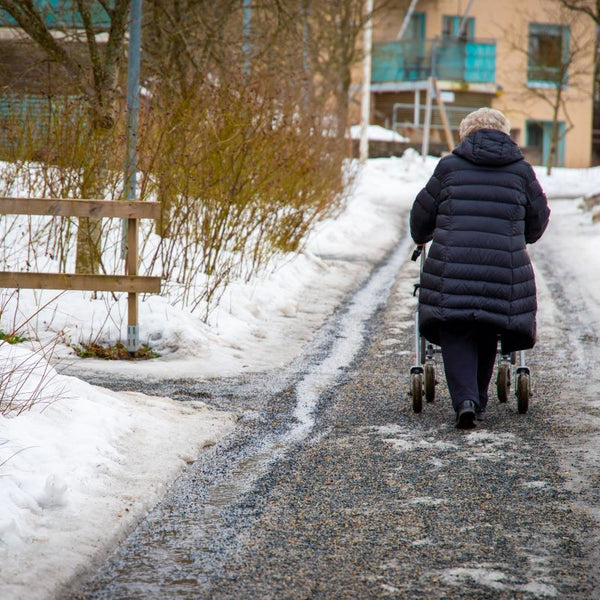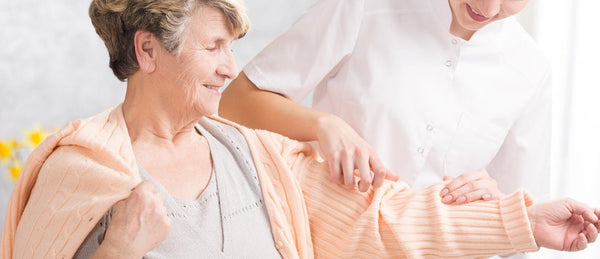We’re getting people talking about care and as part of our #HaveTheTalk campaign, former Olympian Michelle Griffith Robinson and award-winning personal trainer and author Lavina Mehta MBE, shared their experiences of having the talk about future care plans.
You can watch the discussion between Michelle and Lavina below.
The #HaveTheTalk campaign aims to foster honest and open discussions about elderly care and the role technology such as smart home sensors, personal alarms and elderly fall alerts can play in supporting older adults to remain independent. Our recent survey revealed that many people find it easier to talk about topics like death and money than broaching the subject of care.
Michelle and Lavina #HaveTheTalk about care
Our survey findings reveal that 1 in 2 adults are ‘too scared’ to have the talk about future care plans with their elderly parents, and 1 in 3 adults admit they “don’t want to think about parents getting older.”
However, aging is a natural part of life, and having conversations about evolving care needs as people age are crucial for ensuring families are best prepared for the future.
Data also reveals that 1 in 3 adults plan to give up work to care for their elderly parents when the time comes, with women aged 59 being the most common person to perform unpaid care roles. It’s therefore crucial that people are prepared to have conversations about care and their role in the future.
Source: Unpaid and Under Pressure: are Brits trapped caring for elderly parents
The #HaveTheTalk campaign strives to arm people with the information and skills needed to have earlier conversations about care, as studies show that earlier intervention increases the chances of independent lifestyles for longer.
Lavina and Michelle, who have over 166k followers between them, have shared their own experiences of these conversations to give inspiration to anyone in similar situations.
Michelle, who is an ambassador for Diabetes UK, shared how her close relationship with her mother has evolved following her mother’s complications with type 2 diabetes.
“I've only got one parent alive, which is my mummy, and I speak very openly about my Mum who's my hero. I am because of my Mum.”
“[In] Both cultures, Black and Asian, we struggle to talk openly about a lot of things, and sometimes they say in the strongest Caribbean accent, 'You're trying to wish me dead, you want to put me in a home' and we're like, 'No, we're trying to prevent all of those things, we're trying to keep you in your own home, but we're trying to keep you safe'."
After being diagnosed with type 2 diabetes several years ago, Michelle’s mother underwent a leg amputation following complications with her health in January last year. Michelle, who has children of her own to care for, has now also had to put care plans for her mother.
Michelle shared this advice on having the conversation about care with people’s parents:
Make sure to have the conversations before they are too far gone to make sure that they are safe, and that they have got the care and support to help them thrive for the rest of their lives.
Michelle Griffith Robinson
Meanwhile, Lavina shared that whilst her mother is healthy at the moment, she is aware of the importance of planning for the future.
“My Mum is 78 and has no major health issues right now, whilst my parents are with me, they’re able to communicate and express their wishes, that's why this campaign is so important. I want people to have that talk whilst they've got that chance.”
Our parents had these difficult conversations with us growing up and now we have to have difficult conversations with them, but we want to try and encourage them to be in the nicest and kindest way possible.
Lavina Mehta MBE
Commenting on the reasons behind the #HaveTheTalk campaign, Lauren Frake, an elderly care expert from Taking Care Personal Alarms, said:
“The #HaveTheTalk campaign is about removing the stigma from these conversations and encouraging families to be open and honest with each other when it comes to planning for the future – the sooner, the better.
“So often, we find that elderly care solutions are established reactively, likely in response to an elderly person experiencing an accident – often a fall at home – that triggers the need to find a quick solution. Preventative measures that are put into place before an accident happens are so much more effective and can head off potential issues before they happen.”
Our #HaveTheTalk campaign is helping people with elderly parents to open up conversations about elderly care plans through a series of personalised guides, expert tips and video content available on their website.
How to talk to Mum or Dad about care
Find out how you can #HaveTheTalk with your parents and to get a personalised guide to discussing elderly care.






